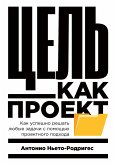And, since you are under pressure, you in turn pressure your team in various ways.
- You order that your instructions be strictly followed.
- You demand that deadlines be met without delays.
- You give lessons on how things are done.
- You criticize and judge if someone makes a mistake.
It's what you've learned. It's what you're used to.
But you know that all this is an exhausting effort, both for you and for the people who work with you.
You are in constant tension, always stressed.
Your team is forced to work overtime. They make an effort that exhausts them.
Then they make mistakes. These errors must be corrected, so you put yourself under tension again.
Apathy and demotivation appear. Performance is getting less and less. The environment is not good.
Why does all this happen?
Very simple: because pressure is not the way.
Pressure is a way of exerting violence with words.
You don't consider yourself a violent person, okay. But without realizing it, you are exercising verbal and psychological violence that leads nowhere.
This makes it impossible to get true commitment from your team.
It is impossible to get the people who work with you to truly be a team. They will only be a group.
In a group there is a boss who orders and pressures, and some subordinates who obey.
A team is something else: everyone is committed because they participate in the decisions.
True leadership consists of that: creating a climate of complicity and collaboration. The pressure becomes unnecessary, and the results improve substantially. They come naturally.
How do you get a group to become a team?
That's what "Agile Coaching for Scrum Masters" is about.
It is the guide that will help you free yourself from orders and pressure.
It is the guide that will introduce you to management skills that you did not know: those that will make you communicate in a completely different way.
These are the skills that make teams work:
- The ability to listen empathetically and without intending to be right. You will be able to understand what is happening to your team while maintaining objectivity.
- The ability to ask powerful questions. You will get the team to participate in the decisions and make them their own.
- The ability to come up with solutions to problems, without judging anyone. You will find specific, measurable, achievable, relevant and time-bound solutions.
I know very well what I'm talking about, as I have extensive professional experience in training and managing teams, applying these skills.
I haven't invented them. They come from two areas: one of them is Agile, a way of working that has revolutionized teamwork, human resources management, and commercial management. That is why leading companies such as Google, Amazon, Facebook, ING Bank, BBVA Compass Bank, Lockheed Martin, Microsoft, etc. apply it.
The other is team coaching. A coach is a trusted person who inspires and motivates another, who accompanies them in their reflections so that they reach their full potential. When you learn to act like this you will see that your group becomes a team.
The time has come for you to change your skin. If you want to form and manage teams based on trust, complicity and collaboration, you are one step away from achieving it.
Dieser Download kann aus rechtlichen Gründen nur mit Rechnungsadresse in A, B, CY, CZ, D, DK, EW, E, FIN, F, GR, H, IRL, I, LT, L, LR, M, NL, PL, P, R, S, SLO, SK ausgeliefert werden.









